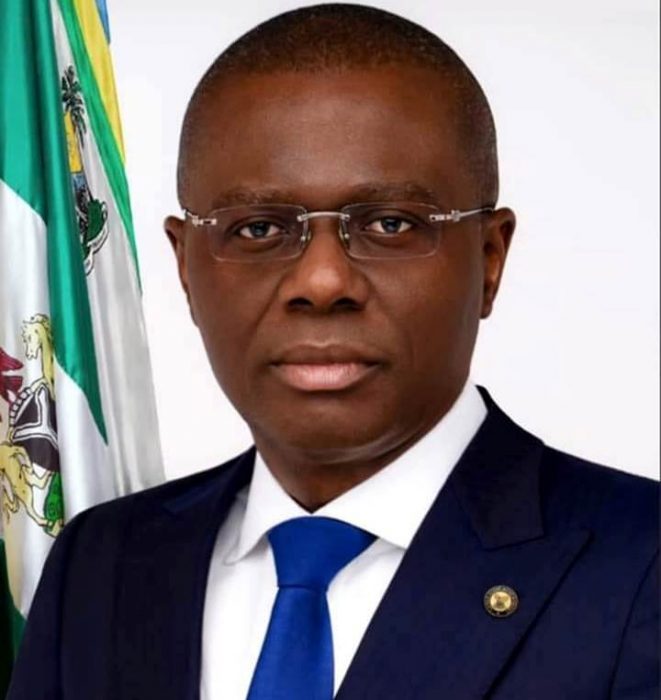By Kayode Abayomi
A major pledge of Lagos State Governor, Mr. Babajide Olusola Sanwo-Olu, is to achieve a ‘Greater Lagos’. In realization of the strategic role of education as a key driver of socio-economic development, the Sanwo-Olu Administration made Education and Technology a foremost part of its T.H.E.M.E.S. (acronyms for Traffic Management and Transportation, Health and Environment, Education and Technology, Making Lagos a 21ST Economy, Entertainment and Tourism and Governance and Security) Developmental Agenda.
With the vision of providing high-quality and accessible education to all learners through effective and efficient management of resources for the attainment of self-reliance and socio-economic development, the Sanwo-Olu Administration has continued to raise the bar in the transformation of the sector.
Consequently, transformation of public schools’ learning environment and capacity building for teachers have received fresh impetus. This is aimed at engendering quality education that will be a pathway to a prosperous State.
The State Government, with its trail-blazing agenda, has resolved to restructure the education sector by improving teaching and learning methods in schools.
To begin with, the Ministry of Education was allocated the sum of N133.5 billion naira (One Hundred and Thirty Three Billion, Five Million Naira) only in the 2020 budget. This is a glaring indication of government’s readiness to fund the sector.
Cheerfully, the results have been tremendous. For instance, 54 new classrooms have been completed in secondary schools while 60 worst infrastructure schools were also rehabilitated. This is in addition to the provision of 60,000 tables and chairs to schools while 92 new classrooms were handed over for use.
Some of the beneficiaries of these renewed infrastructure regeneration project are Eva Adelaja Junior High school, Bariga; Maya Senior Grammar school, Ikorodu; Egbe Junior College, Egbe; Ayanleye Primary School, Ifako Ijaye; Oladele Alake Primary School, Ejigbo; Saviour Primary School, Ifako Ijaye; Ikotun Primary School, Ikotun; Bashua Military Primary School Shomolu and Ansar Ud-Deen Primary School, Epe.
The slogan, “Leave No Child Behind” became prominent with the advent of the Eko-Excel initiative, a transformation enterprise of the incumbent administration. Eko-Excel, an acronym for “Excellence in Child Education and Learning”, which was rolled out in phases, is planned to help 14,000 Head-Teachers and students embrace digital teaching, using tablets and updated curriculum in line with the Sustainable Development Goal 4. Over 4,000 public primary school teachers have been trained under the pilot scheme with each of them given a tablet to work with.
The programme has equipped teachers with skills to deliver value, empower pupils with requisite knowledge to improve education and help in sustaining the growth of Lagos State as a leading knowledge driven city and economy in the world. Apart from its technological advantage, the initiative provides a multi-dimensional approach to learning, which includes character molding of pupils from their formative stage. Thus, Character Boards are placed in all public schools to display names of well-behaved and outstanding pupils to engender progressive competition.
The COVID-19 pandemic reality has undoubtedly heightened the State Government’s resolve and commitment to creatively use media technology to push the quality of education to a world-class standard, while making learning outcomes accessible with the background knowledge that education remains a critical success factor for the socio-economic development of the State.
To continuously build capacity of teachers, 18,000 secondary school teachers have been trained in digital literacy by Microsoft Office. Also, an additional 2,500 secondary schools’ teachers have been trained in Scenario Planning based on remote learning, teaching and classroom coordination. These are post COVID-19 measures connoting preparedness and safety precautions when schools are finally re-opened. Presently, seminars, webinars, sensitization workshops and stakeholders’ workshops are continuous for teachers across the State.
Teachers’ welfare has equally received a boost with N7.8million disbursed as car refurbishment loans and another N3 million disbursed as housing loans respectively to teachers. Other incentives to further encourage teachers are awards for Best Teacher and apartments for Best Teacher and Best School Administrator.
2000 primary school teachers and 1000 secondary school teachers were also recruited to complement the existing team, while the newly engaged were given adequate trainings before joining the workforce.
To leverage on the prospect of Public-Private-Partnership (PPP), a PPP-Dialogue, aimed at improving the quality of education in the State, was organized. This partnership has begun to yield positive dividends as First Bank PLC donated 20,000 e-learning devices, Edfin Micro Finance Bank donated 100 e-learning devices to teachers while MTN Nigeria provided 6 months internet support for students among others.
The low-end devices have been preloaded with the Lagos State Ministry of Education accredited Curriculum and are designed to work offline making it efficient and suitable for students’ learning processes. The offline option removes the snag of data consumption
With the associated challenge of the COVID-19 pandemic, especially as it relates to school closure, these donations have come in handy, just as the Ministry of Education has continued to organize electronic learning and teaching platforms through radio, television and the internet to continuously engage the students. Similarly, across the 976 public primary schools in the State, the Ministry, through the Home Grown School Feeding Programme, feed 135,445 pupils daily.
In order to boost the quality of education, the school Curriculum, which plays an important role in learning outcomes, was reviewed and integrated with 21st century skills in the State’s schemes of work while the 2020 major book review is ongoing. The Distance Learning Approach is also currently being integrated.
Similarly, the capacity and welfare of students are being immensely improved, and this can easily be gauged in their performances and emergence as champions in both local and international competitions. In the finals of the National Robot Olympiad in September, 2019, held at Edutus, Gyor Hungary, the State emerged 2nd, 3rd & 4th respectively, while the State Contingent also received 11 trophies and 14 medals in 2020 National Junior Engineers technicians and Scientist (JETS) competition to mention but a few.
Furthermore, the State’s Vocational Centres are now better equipped, as Office equipment, consumables (Arts and Crafts materials), Generator, fridge and sewing machines are being provided while two new buses and office equipment have equally been provided for monitoring of primary schools.
A smart city is one that provides prompt social services to the citizenry through enhanced education and technology. The Sanwo-Olu administration has, no doubt, made significant progress in making good use of education and technology as a veritable developmental vehicle.
According late President Nelson Mandela of South Africa, “the power of education extends beyond the development of skills we need for economic success. It can contribute to nation-building and reconciliation.” It is, indeed, in the light of this that the Sanwo-Olu Administration has making conscious efforts to improve the capacity of teachers to provide decent education via technology.
Abayomi is of the Public Affairs Department, Ministry of Education, Alausa, Ikeja, Lagos.















